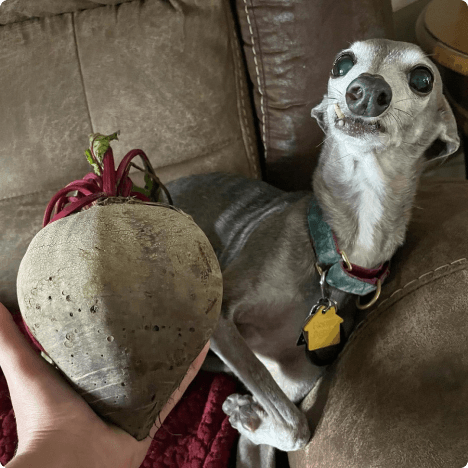Lettuce get real
What imperfect means
Singled out for being wonky, funky, or bumpy, these imperfect foods are ripe to be rescued (by you!).


Lettuce get real
Singled out for being wonky, funky, or bumpy, these imperfect foods are ripe to be rescued (by you!).


Rejecting perfectly delicious food is costly: for people like you, for farmers whose work goes unpaid, and for the environment. It all adds up. But so do all of our efforts to save that food from going to waste in the first place—which is why we source based on flavor, not perfection.


Some items, like scuffed apples or scarred avocados, are often rejected by The Big Stores because they don’t live up to strict beauty standards. But their loss is our customers’ gain because we know these aesthetic “flaws” have nothing to do with quality. We say: Taste before beauty.


Retailers tend to only accept produce that meets arbitrary standards for size, rejecting items that are too “small” or “big.” But we’ll gladly take a Mandarin orange that's a few centimeters too large (no!), wonky-shaped chocolate-covered cherries (gasp!), or slightly petite peanuts (*faints*). We’re big on flavor, not drama.


Farmers often plant more crops to give themselves a buffer for unexpected challenges, like really bad weather. But if everything goes just right, they wind up with extra food—which we’re happy to take off their hands and put on our customers’ tables. We’re fair weather fans.
We aim to give ingredients a second chance, like okara flour—made with organic soybeans left over from making soy milk—that’s used in our Upcycled Chocolate Chip Cookies. Or the tasty broken pretzel bits that make it into our beloved Dark Chocolate Covered Pretzel Pieces. We love a good comeback story.






When a product goes through a rebrand, it often includes a packaging change. Or maybe a company switches up their logo to better align with their mission. Either might leave a business with surplus products that are still great, just dressed in the wrong clothes—giving us (and you!) the chance to snag them at a lower price. Sometimes we wear mismatched outfits, too.


“Best by” dates represent estimated “peak” quality, but often these items have much longer windows for safe consumption. Instead of letting them get thrown out or stranded in a warehouse, they can find a new home in your kitchen. We believe age is just a number.

These papayas developed harmless sun spots when the temperatures fluctuated. Major retailers judge these spots, but we know they’re only skin deep.
@potheteddybear

Too large for juicers and stores, these California grapefruits were extra juicy and ripe for the rescuing.
@ashabercrombie

Our friends at the family-owned Lakeside Organics were in a bind: They had hundreds of oversized beets that were just too big to sell as a bunch!
@lightwench
Wasting food is costly—for people like you, for food suppliers whose work goes unpaid, and for the environment. It all adds up. But so do all of our efforts to save that food from going to waste in the first place. Learn more